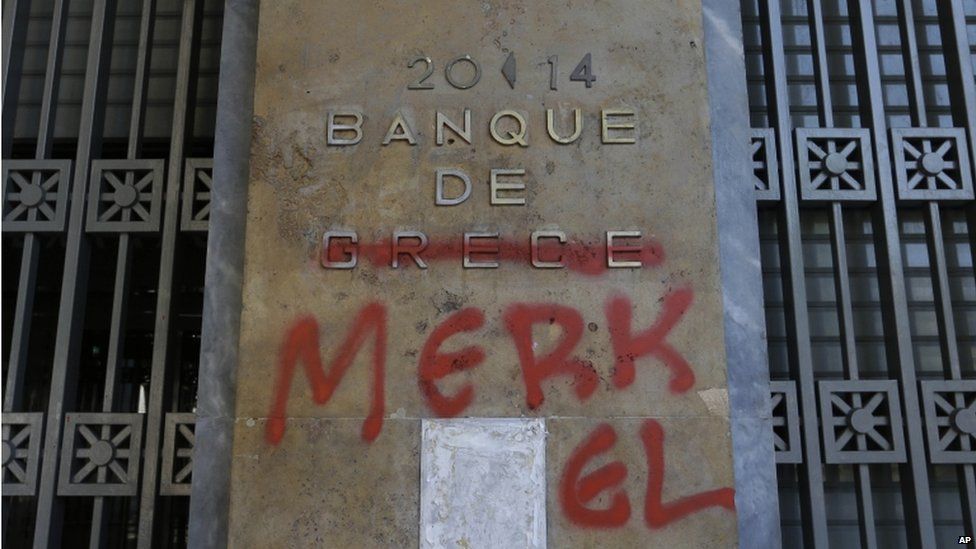Greece debt crisis: Varoufakis says bailout 'won't work'
- Published

Former Greek finance minister Yanis Varoufakis has said the latest Greek bailout deal "is not going to work".
Mr Varoufakis, speaking on the BBC's World at One, said that other negotiators in Tuesday's agreement felt the same way.
He said: "The Greek finance minister… says more or less the same thing."
He added that he had seen the "finance minister of Germany go to the Bundestag and effectively confess this deal is not going to work".
"The International Monetary Fund... is throwing up its hands collectively despairing at a programme that is simply founded on unsustainable debt... and yet this is a programme that everybody is working towards implementing."
Mr Varoufakis was removed from the talks early last month and replaced by the present finance minister, Euclid Tsakolotos.
He added: "Ask anyone who knows anything about Greece's finances and they will tell you this deal is not going to work,"
Tsipras 'optimistic'
But Greek Prime Minister Alexis Tsipras said on Wednesday that the deal would end the country's economic uncertainty.
Mr Tsipras is expected to call an emergency session of parliament on Thursday to ratify the bailout.
He faces opposition from many hardliners in his radical left Syriza party who oppose the austerity measures included in the deal.
Mr Tsipras said: "Despite the obstacles that some are trying to put into our path, I'm optimistic we will get to an agreement, loan support from the European mechanism, which will put a final end to economic uncertainty."
Greece must repay some €3.4bn to the ECB by next Thursday. If the deal is not finalised by then, Athens may need more emergency funding.
Eurozone finance ministers are expected to meet at the weekend to endorse the draft deal.
However, many member states believe more negotiating has to be done. On Tuesday, Finnish Finance Minister Alexander Stubb said: "There remains work to be done with details. Agreement is a big word."
The German government has welcomed Tuesday's deal, calling it a "substantial result".
But it said it must study the deal further before deciding whether it was ready for approval by the German parliament.
- Published12 August 2015
- Published11 August 2015
- Published11 August 2015
- Published10 August 2015